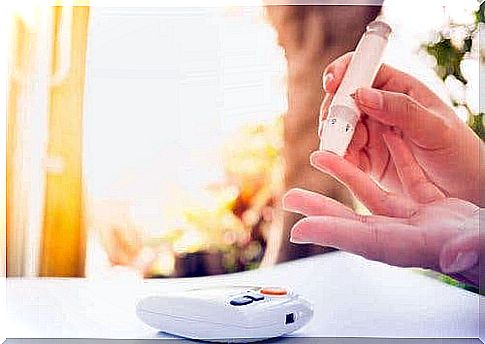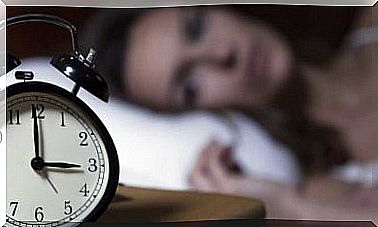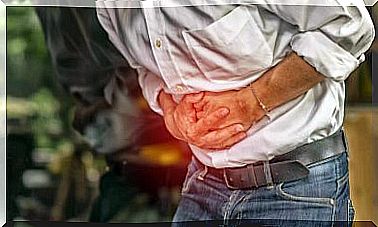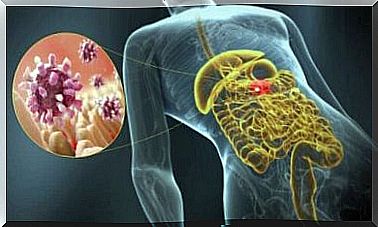What Are The Symptoms Of Hypoglycemia?

People may confuse the symptoms of hypoglycaemia with other medical conditions when the drop in blood sugar is mild. If you eat foods rich in carbohydrates, it can actually go unnoticed.
Hypoglycemia is when your blood sugar level drops. More specifically, for a patient to receive this diagnosis, they must have less than 70 mg per deciliter (mg / dL) of blood sugar.
Although you will see below that the causes are varied, it is important to first understand how the body absorbs glucose. The mechanism of how the body absorbs it explains how the symptoms of hypoglycemia occur when the body at some point fails.
We get glucose from foods. Not all foods that contain glucose are necessarily sugary or sweet. The body also extracts glucose molecules from fruits and vegetables.
To be effective, glucose must enter the cells of the tissue. There it is converted into energy for the cell functions. Insulin regulates this process.
Insulin is a hormone secreted by the pancreas. It regulates the supply of sugar that circulates in the blood inside the cells. This is the hormone that does not work properly in people with diabetes.
Glucagon, another hormone produced by the pancreas, is the insulin antagonist. Glucagon has the function of stimulating the liver to break down the glycogen stored in it as well as circulating blood sugar. In short, we can say that insulin lowers blood sugar, while glucagon increases it.
In this hormonal “game”, along with other factors, the symptoms of hypoglycemia may appear. It will be mild or severe, depending on the amount of glucose circulating in the blood.
The symptoms of mild hypoglycaemia
Many times, when the symptoms of mild hypoglycaemia occur, they go unnoticed. This is a drop in blood sugar that is not strong enough to adversely affect vital organs.
Symptoms include:
- Lots of sweat
- Headache
- Dizziness, motor uncoordination and impaired vision.
- Drowsiness. Sometimes it manifests itself as difficulty concentrating, as if you can not think clearly.
- Muscle tremors

The symptoms of severe hypoglycaemia
When the level of hypoglycaemia is significant and the blood sugar level has dropped sharply, the symptoms are:
- Seizures. Usually in the form of severe muscle movements, such as twitching.
- Fainting with loss of consciousness. This can take a long time, which means that the patient may not recover immediately.
- Inability to eat. Sometimes as an isolated symptom of hypoglycaemia and sometimes as part of the clinical picture of seizures or fainting.
The causes of hypoglycaemia
There may be five causes behind the symptoms of hypoglycaemia. The causes can usually be prevented, except for insulinoma (although it is rare):
- Diabetes. Although it is a condition that increases blood sugar levels, it is paradoxically the most common cause of hypoglycemia. This is because of the medications used to treat diabetes. At the beginning of treatment, until the correct dose is detected, or due to a change in routine, blood sugar levels may drop sharply.
- Alcohol. In alcoholics, the symptoms of hypoglycaemia are not uncommon. The underlying mechanism is that alcohol prevents the release of glucose in the liver. This is usually combined with long periods of fasting, which means that an alcoholic does not eat enough or at the right time.
- Prolonged fasting. Long periods of fasting can cause this, even if the glucagon acts at first. This is because at some point it will not be enough. Diseases such as anorexia nervosa cause prolonged fasting. If a person does not eat, the body does not get the glucose it needs.
- Medicines. In addition to the medications used to treat diabetes, other medications can cause hypoglycemia as a side effect. For example, we can mention quinine to treat malaria, or gatifloxacin, which is an antibiotic.
- Insulinom. A tumor in the pancreas that occurs due to an excessive growth of the cells that produce insulin. If there is more insulin in the body, episodes of hypoglycaemia may occur.
What to do in case of hypoglycaemia
As we just explained, the symptoms of hypoglycaemia can be mild or severe. The course of action will therefore depend on this classification.
If the hypoglycemia is mild, the most effective measure is to obtain fluids that allow the person to get glucose quickly. You can try a glass of water with two tablespoons of sugar, a glass of sugary drink as soda, or 0.2 liters (200 ml) of fruit juice.
Furthermore, patients with severe hypoglycaemia cannot eat anything because they will either be unconscious or have seizures. In these cases, the doctor artificially injects the hormone glucagon through an injection.









